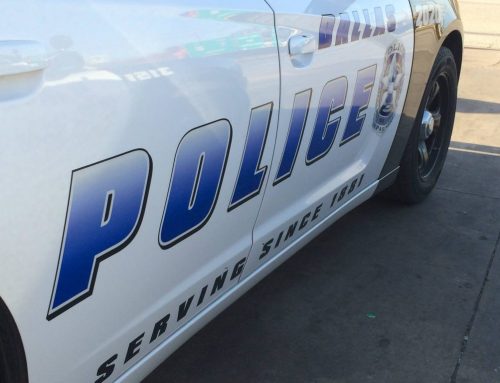Rick: Tragic news to report: Commander (the Storefront’s mascot cat) died.
Advocate: I thought he was getting better when we talked last month.
Rick: He was sicker than we thought. He picked up some kind of virus somewhere. He lost half of his body weight during his week at the vet, and it didn’t look good. He just kept getting better and then worse. Finally, we took him to another vet, and he just died. We were really saddened.
There was only one Commander; that cat had personality. When Commander was here, we had kids who would come into the office just to play with him, really having a good time. The kids who come in here really love animals.
So now, Batman has returned. He’s a Siamese cat we picked up at the SPCA. He’s all over the Storefront, into everything.
Tri: We had a kid yesterday who was chasing Batman all through the Storefront.
Advocate: Does having a mascot like a dog or cat hanging around the office help with police work?
Rick: When folks see a pet in the office, it kind of puts them at ease, makes them more relaxed.
Tri: It breaks the ice a little bit.
Rick: The Storefront needs a cat. We have found that cats really help control the mice and rodent problem, caused by some of the donated food we store here before it is given to the needy.
And probably a day doesn’t go by when someone doesn’t walk by and tap on the (Storefront) window to say ‘hi’ to the cat.
Advocate: What about Pam? Where did she go?
Rick: She transferred to street-level narcotics.
Advocate: What does that mean?
Rick: They deal with the street-level narcotics, not the big international drug deals. They go into dope houses, make buys, and then arrest people. They’re in an undercover position doing that.
Advocate: Is that a good job?
Rick: Well, Pam wanted to get out of the (police) uniform and become an investigator, and this is a step in that direction.
Tri: A lot of what they do involves paperwork, working with the district attorney on arrests and all of that, that an investigator does every day. So it’s good training.
Advocate: Halloween is coming up. Is that a pretty wild time for officers to be on the streets?
Rick: Nowadays, there are more nuisance calls, egging of houses, that kind of stuff. But there are still a few folks out there who will poison candy and that kind of thing, so people need to stay aware. Really, the 4th of July and New Year’s Eve are worse.
Tri: You know, you think of Thanksgiving and Christmas as big family times, but there’s more domestic violence during those periods than at any other time.
Rick: In the past, we haven’t done anything organized (about crime prevention) for Halloween. But we’re available to speak to neighborhood groups with our Halloween crime-prevention seminars, if they want.
Advocate: What else has the Storefront been up to?
Rick: We’re getting together an action plan for the Asian community, trying to improve communications, for the most part. Right now, language is the biggest problem. When people call 911, for example, they have a hard time – lots (of Asians who don’t speak English) just hang up because they can’t communicate.
We’re trying to get the word out about how people should identify themselves when they call for the police.
Tri: We have a flyer that covers all the different languages spoken here – Vietnamese, Thai, Cambodian, Laotian, Chinese. We tell them, when you call 911, don’t hang up, just tell them what language you speak.
One problem we are having is that when people (Vietnamese) in our area are having a problem, they don’t call 911, they call me at the Storefront. That’s one of the things we’re trying to change, to teach them how to dial 911.
Paul: We’re putting flyers together in six different languages to let people know that AT&T (through the 911 call) has a system to automatically route their calls to operators who can speak their language.
For example, if an operator tells an Asian “don’t hang up”, that doesn’t translate into an Asian language. Instead, we are teaching the Asians to understand “wait”, and we tell them to identify the language they speak immediately so the operator can route them properly.
That’s part of my job as Asian community liaison officers from different divisions in the City here at the Storefront. We also have a crime prevention survey. We’re just trying to make sure people feel more secure and make them more secure.
I’m not just a police officer, I’m a grassroots community leader. I’m on call 24-hours a day, and I’m a board member of many social agencies. (Editor’s note: Paul is married, has three children and has lived in East Dallas for 11 years.)
Advocate: Is there a big problem in East Dallas with gangs extorting “protection” money from businesses?
Paul: Yes. The business owners are afraid to tell us, because the gangs never threaten them directly, they just say: ‘God may send fire to your house’. The going rate for “protection” is $300.
Advocate: How long is that “protection” money good for, a week or a month or a year?
Paul: Usually a month. And the price can go up, it could be $500 or whatever, depending on the business.





